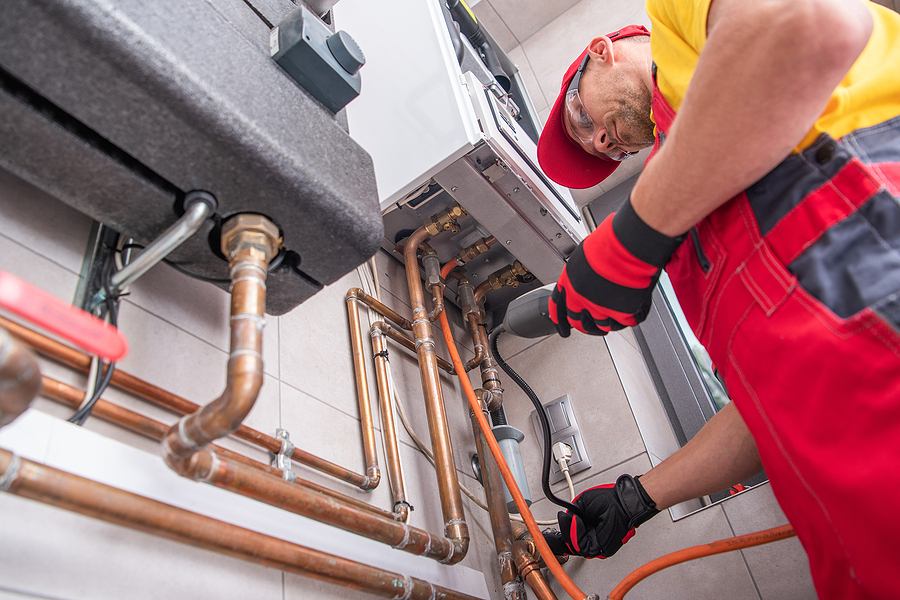Call This Monday to Get $50 OFF
Call This Monday to Get $50 OFF
Call This Monday to Get $50 OFF
Call This Monday to Get $50 OFF
Gas line installation is a major project that requires professional expertise and vast industry experience. Whether you’re installing a gas line in a newly built house or adding a new appliance, it’s important to know what to expect during the process. This will allow you to navigate the project smoothly.

In this article, the plumbers at High Speed Plumbing explain what you can expect during gas line installation. We’ve been installing and repairing gas lines for over 40 years, so we know what goes into delivering a reliable and safe setup. Feel free to contact us when you need gas line repair service.
Every gas line installation starts with a detailed assessment of your needs. A licensed plumber will evaluate your existing gas system, identify where the new line will run, and calculate the total gas demand to ensure your system can handle the additional load. The type of appliances you’re installing and their locations play a big role in determining the pipe size, routing, and materials used. If you're installing a line for outdoor use or in a new addition, trenching or wall access may be required.
Next, your plumber will secure the necessary permits. Gas line installation in Monrovia is governed by local building codes and requires inspection. These regulations exist for your safety, as improperly installed gas lines can lead to dangerous leaks or even explosions. Working with an experienced, licensed plumber ensures your installation is fully compliant with both state and local requirements.
Once the design is finalized and permits are in place, the installation begins. The plumber will turn off the gas supply and carefully run the new pipe, whether it’s black iron, CSST (corrugated stainless steel tubing), or another approved material, from the main supply line to your new appliance or location. They’ll use proper fittings and connectors, making sure all joints are sealed tight. If the installation involves running gas lines underground, excavation and protective pipe coatings may be required to prevent corrosion.
Before your new line is put into service, it must undergo thorough testing. This includes a pressure test to check for any leaks in the system. A licensed plumbing repair service will use specialized equipment to verify that the line holds pressure without drops, confirming that every connection is secure and leak-free. This step is not just standard; it's required by law in most areas to ensure the system is safe before turning the gas back on.
If you're hearing a rumbling sound from your basement, don't ignore it. At High Speed Plumbing, we've seen everything from thermostat…
Running out of hot water at your business can mean angry customers, health code violations, or a full operational shutdown. Restaurants,…
Are you dealing with a leaky faucet, low water pressure, or a broken handle? If so, you might need a faucet…
A properly working garbage disposal makes kitchen cleanup easy and efficient. If your disposal is acting up—making loud noises, leaking, or…
When your main water line has a problem, it can cause a lot of trouble for your home. Leaks, low water…
Are you dealing with an old, leaky, or broken toilet? If so, it may be time for a toilet replacement in…
If you’re concerned about the quality of your water, water filtration installation in Pomona is a wise choice. A good filter…
Traditional snaking or chemical drain cleaners can harm pipes and aren’t always effective at reaching deep blockages…
After a successful test, the local building authority may perform a final inspection. Once it passes, the plumber can turn the gas back on and connect your appliance or system to the new line. You’ll also receive instructions for safe use, and in some cases, the plumbing repair service may relight your pilot lights or calibrate your appliances to ensure proper function.
Have you noticed an unusual smell of gas? Is there a hissing sound near gas appliances or lines? Are gas bills going up without increased usage? These are common signs that you need to call a local plumbing repair service to inspect your gas line. You do not have time to waste when it comes to gas line damage. Here at High Speed Plumbing, we are ready to respond as quickly as possible and help you restore your gas line to good working order. Contact us now to book an appointment with our plumbers